News
-
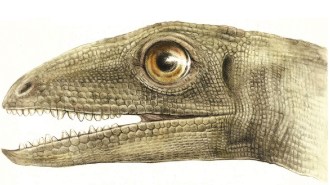 Paleontology
PaleontologyFossilized dung from a dinosaur ancestor yields a new beetle species
Whole beetles preserved in fossilized poo suggest that ancient droppings may deserve a closer look.
By Nikk Ogasa -
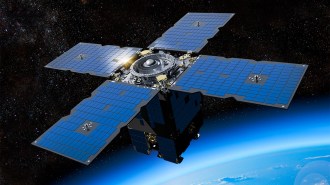 Physics
PhysicsAn atomic clock that could revolutionize space travel just passed its first test
The most precise clock ever sent to space successfully operated in Earth’s orbit for over a year.
-
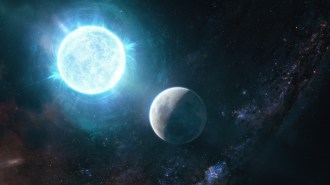 Astronomy
AstronomyThis moon-sized white dwarf is the smallest ever found
A newfound white dwarf is the smallest and perhaps the most massive known, and spins around once every seven minutes.
-
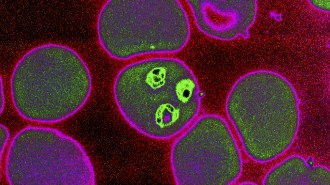 Health & Medicine
Health & MedicineA malaria vaccine with live parasites shows promise in a small trial
After taking anti-malarial drugs after each vaccine dose to clear the parasite from the body, volunteers appeared well-protected from infection.
-
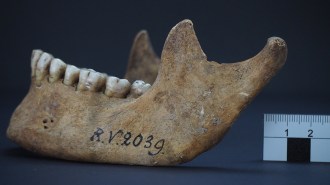 Humans
HumansAncient human bones reveal the oldest known strain of the plague
The earliest known plague strain emerged about 7,100 years ago and was less contagious as the one behind Black Death — but was still deadly.
-
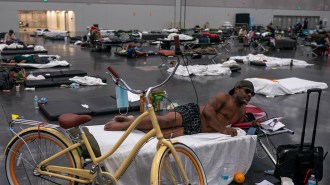 Climate
Climate3 things to know about the record-smashing heat wave baking the Pacific Northwest
Road-buckling, cable-melting, life-threatening heat waves in the Pacific Northwest may become more common as global temperatures rise.
-
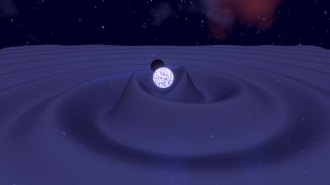 Physics
PhysicsGravitational waves reveal the first known mergers of a black hole and neutron star
For the first time, LIGO and Virgo have detected long-anticipated gravitational waves from a black hole merging with a neutron star.
-
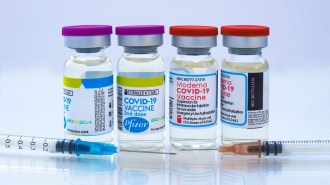 Health & Medicine
Health & MedicineHow COVID-19 vaccines were made so quickly without cutting corners
Usually it takes years to get both test results and FDA authorization, but speedy spread of the virus and eager volunteers shrunk the shots’ timeline.
By Rachel Lance -
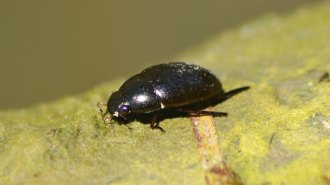 Animals
AnimalsThese beetles walk on water, upside down, underneath the surface
Many insects can skate atop the water’s surface thanks to water tension, but one beetle can apparently tread along the underside of this boundary.
By Jake Buehler -
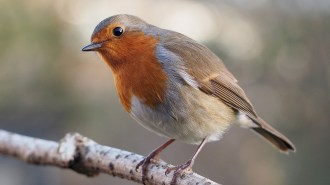 Animals
AnimalsA proposed ‘quantum compass’ for songbirds just got more plausible
Quantum physics could be behind birds’ magnetic sense of direction, new measurements indicate.
-
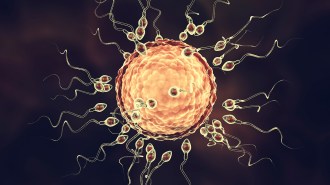 Genetics
GeneticsEmbryos appear to reverse their biological clock early in development
A new study suggests that the biological age of both mouse and human embryos resets during development.
-
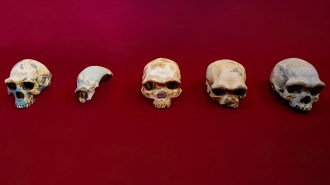 Anthropology
Anthropology‘Dragon Man’ skull may help oust Neandertals as our closest ancient relative
A Chinese fossil has been classified as a new Homo species that lived more than 146,000 years ago, but not all scientists are convinced.
By Bruce Bower